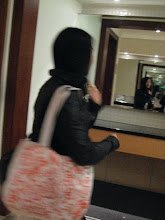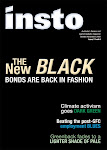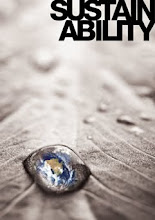0
The most interesting conversations I've ever had have been with strangers...
Posted by JSYL
on
Tuesday, April 28, 2009
in
The Secret Life of Journalists
...hell, it's probably why I've always been so attracted to the profession of journalism.

Over the last couple of weeks I've been working on an article about Myanmar's (Burma's) position under the recently signed ASEAN Australia New Zealand Free Trade Agreement (AANZFTA), given its astonishing human rights record, most recently noted by journalists that covered the Saffron uprising of late 2007 and in the early days following Cyclone Nargis.
I don't think I quite knew what I was getting myself into when I started researching Burma. I had a hard time securing interviewees straight off the bat. But I succeeded in the end, and I even think my skin's gotten thicker from the experience, which is always a good thing for a wannabe journalist.
I may have even improved my interviewer 'style' or 'technique', if you consider catching a politician (Greens Senator Scott Ludlum, Burma Campaign Australia) off guard for a moment a measurement of journalistic success:
JSYL: To be very cynical though, would you say that Australia possibly doesn’t have enough to gain from taking such a strong stance in terms of resources or in terms of trade, or alternatively that it benefits somewhat from not taking action [against the Burmese military regime]?
Senator Ludlum: [muttered under breath] I wish this was a conversation rather than an interview.
I didn't realise he'd said this 'til I transcribed the interview. Had I known, I probably would have further pressed him to speak more openly.
It got me thinking: what is the difference between an 'interview' and a 'conversation' with a journalist? Surely journalists are encouraged to challenge and discuss various views with their sources to generate a meaningful debate, as long as they avoid promoting their own? Another interview I did with Sean Turnell, the editor of Burma Economic Watch (which was well worth the wait) ultimately turned into what Ludlum might term a conversation:
Turnell: I think also though, that we should probably be a bit more critical of China because clearly China is the country playing the biggest role and it’s a wholly negative role.
JSYL: But you’ve heard all these media reports about how the Australian government is so eager to retain its relationship with, and not to offend China at all, even in the slightest at the moment.
Turnell: Indeed. No, I agree and I think this is an area, Jane, where Australia should be saying: "Look we respectfully disagree with you". In fact, in some ways it might even be an opportunity for the Australian government because obviously lately it’s come under a bit of criticism for being a bit too close to China and so on, and this might be an interesting, low-cost way in which they can express their empathy!
JSYL: Right, because I don’t believe that getting a tougher stance on Burma is really going to compromise our relationship with China that much.
Turnell: Totally agree, totally agree.
JSYL: I mean look at Tibet. We’ve met with the Dalai Lama so many times and nothing’s happened.
Turnell: Absolutely right.
JSYL: I don’t know. I think I’ve spoken to too many activists.
Turnell: Well I’m really quite fascinated with your attitude as well because that’s quite interesting to me, and educative for me. And I think you’re right because it sort of goes to the point that I mentioned earlier that…for once we can say there actually is right and wrong. It’s one of those things where so much of the world is grey, but not, not this regime...
And at the end of the interview, he gave me the nicest compliment I've possibly ever received:
Turnell: Okay, well thank you! Your questions were incredibly perceptive because I spend a lot of time talking to the press and most people have nowhere near the understanding that you have and have asked as penetrating questions and as broad as well. Most people just highlight one particular sanction or whatever, so no, it was a pleasure.
So where does the line between interview and conversation lie? And did I cross it, in this instance?

Over the last couple of weeks I've been working on an article about Myanmar's (Burma's) position under the recently signed ASEAN Australia New Zealand Free Trade Agreement (AANZFTA), given its astonishing human rights record, most recently noted by journalists that covered the Saffron uprising of late 2007 and in the early days following Cyclone Nargis.
I don't think I quite knew what I was getting myself into when I started researching Burma. I had a hard time securing interviewees straight off the bat. But I succeeded in the end, and I even think my skin's gotten thicker from the experience, which is always a good thing for a wannabe journalist.
I may have even improved my interviewer 'style' or 'technique', if you consider catching a politician (Greens Senator Scott Ludlum, Burma Campaign Australia) off guard for a moment a measurement of journalistic success:
JSYL: To be very cynical though, would you say that Australia possibly doesn’t have enough to gain from taking such a strong stance in terms of resources or in terms of trade, or alternatively that it benefits somewhat from not taking action [against the Burmese military regime]?
Senator Ludlum: [muttered under breath] I wish this was a conversation rather than an interview.
I didn't realise he'd said this 'til I transcribed the interview. Had I known, I probably would have further pressed him to speak more openly.
It got me thinking: what is the difference between an 'interview' and a 'conversation' with a journalist? Surely journalists are encouraged to challenge and discuss various views with their sources to generate a meaningful debate, as long as they avoid promoting their own? Another interview I did with Sean Turnell, the editor of Burma Economic Watch (which was well worth the wait) ultimately turned into what Ludlum might term a conversation:
Turnell: I think also though, that we should probably be a bit more critical of China because clearly China is the country playing the biggest role and it’s a wholly negative role.
JSYL: But you’ve heard all these media reports about how the Australian government is so eager to retain its relationship with, and not to offend China at all, even in the slightest at the moment.
Turnell: Indeed. No, I agree and I think this is an area, Jane, where Australia should be saying: "Look we respectfully disagree with you". In fact, in some ways it might even be an opportunity for the Australian government because obviously lately it’s come under a bit of criticism for being a bit too close to China and so on, and this might be an interesting, low-cost way in which they can express their empathy!
JSYL: Right, because I don’t believe that getting a tougher stance on Burma is really going to compromise our relationship with China that much.
Turnell: Totally agree, totally agree.
JSYL: I mean look at Tibet. We’ve met with the Dalai Lama so many times and nothing’s happened.
Turnell: Absolutely right.
JSYL: I don’t know. I think I’ve spoken to too many activists.
Turnell: Well I’m really quite fascinated with your attitude as well because that’s quite interesting to me, and educative for me. And I think you’re right because it sort of goes to the point that I mentioned earlier that…for once we can say there actually is right and wrong. It’s one of those things where so much of the world is grey, but not, not this regime...
And at the end of the interview, he gave me the nicest compliment I've possibly ever received:
Turnell: Okay, well thank you! Your questions were incredibly perceptive because I spend a lot of time talking to the press and most people have nowhere near the understanding that you have and have asked as penetrating questions and as broad as well. Most people just highlight one particular sanction or whatever, so no, it was a pleasure.
So where does the line between interview and conversation lie? And did I cross it, in this instance?








